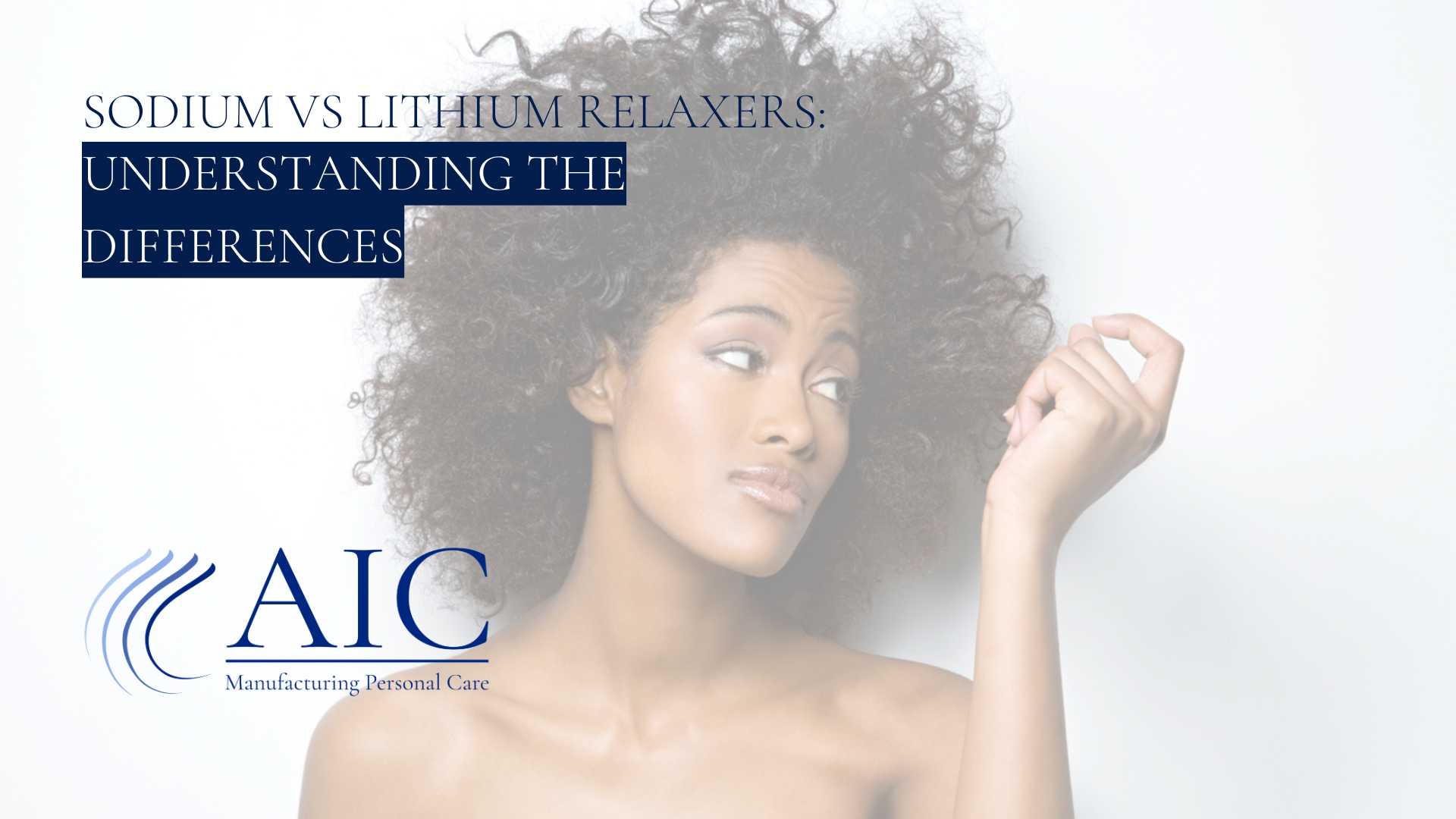For many with curly or coily hair, chemical relaxers offer a way to achieve straighter styles. But within the world of relaxers, there are different options, each with its own chemical makeup and effects. Two of the most common active ingredients in relaxers are sodium hydroxide and lithium hydroxide. Understanding the differences between sodium and lithium relaxers can help you choose the best option for your hair’s health and desired results.
Breaking Down the Bonds:
Chemical relaxers work by breaking down the disulfide bonds within the hair’s cortex, the inner layer responsible for its shape. This weakening allows the hair to be straightened and reformed during styling. Here’s where sodium and lithium come in:
- Sodium Hydroxide (Lye): A strong alkali, sodium hydroxide (often referred to as “lye”) is a highly effective relaxer, working quickly to break down bonds. This efficiency makes it a popular choice for professional stylists who can apply and remove the relaxer precisely to minimise damage.
- Lithium Hydroxide (No-Lye): A milder alternative to sodium hydroxide, lithium hydroxide offers a gentler approach to straightening. It breaks down bonds at a slower rate, potentially reducing the risk of scalp irritation commonly associated with stronger relaxers.
Understanding the Trade-Offs:
While both sodium and lithium relaxers achieve similar results – straightening hair – they come with distinct advantages and disadvantages. Here’s a table summarising the key differences:
Feature | Sodium Hydroxide (Lye) | Lithium Hydroxide (No-Lye) |
Strength | Strong | Mild |
Processing Time | Faster | Slower |
Effectiveness | Highly effective | Moderately effective |
Scalp Irritation | More likely | Less likely |
Hair Damage | Higher risk | Lower risk |
Cost | Generally less expensive | May be more expensive, due to the surge in demand for lithium in phone and laptop batteries |
Sustainability | More readily available | Less abundant resource |
Choosing the Right Relaxer for You:

There’s no one-size-fits-all answer when it comes to relaxers. The best choice depends on your hair type, desired results, and sensitivity. Here are some factors to consider:
- Hair Type: If you have very coarse or tightly coiled hair, sodium hydroxide might offer a more dramatic straightening effect. However, for fine or fragile hair, lithium hydroxide’s gentler approach can be a safer option.
- Scalp Sensitivity: If you have a sensitive scalp or are prone to irritation, lithium hydroxide’s milder formula is a better choice.
- Desired Results: For a straighter, more permanent result, sodium hydroxide might be preferred. However, if you’re looking for a more relaxed curl pattern with less processing time, lithium hydroxide could be suitable.
Maintaining Relaxed Hair:
Regardless of the relaxer type you choose, proper aftercare is crucial for maintaining healthy hair. Here are some tips:
- Deep conditioning: Relaxed hair is more prone to dryness. Deep condition regularly to replenish moisture and prevent breakage.
- Protein treatments: Relaxers can weaken hair bonds. Protein treatments can help strengthen and rebuild hair structure.
- Minimise heat styling: Heat styling tools can further damage relaxed hair. Limit their use and apply heat protectant spray before styling.
- Regular trims: Split ends are more noticeable on relaxed hair. Schedule regular trims to maintain healthy ends.
Conclusion:
Sodium and lithium relaxers offer distinct approaches to hair straightening. Understanding their differences in strength, processing time, and potential for damage allows you to make an informed decision for your hair’s health and desired look. By consulting a professional stylist and implementing proper aftercare, you can achieve beautiful, healthy relaxed hair.
Additional Note:
AIC is committed to providing high-quality hair care products that cater to diverse hair types and needs. While this article focuses on relaxers, we also offer a range of conditioners, styling products, and treatments formulated to nourish and protect relaxed hair. Visit our website to explore our full range of products.




